Category: Uncategorized

Think you can cheat with AI? A UF professor creates watermarks to detect AI-generated writing
February 26, 2025AI is putting instructors and employers in an awkward position when it comes to accepting written work, leaving them wondering: Who wrote this? A human or AI? A UF engineering professor is developing a digital watermark that could remove the guesswork and actually flag AI-generated text when someone submits their writing.
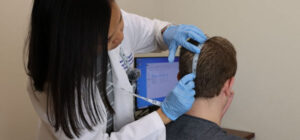
The University of Florida’s ‘AI Queen’ is using AI technology to help prevent dementia
February 26, 2025Aprinda Indahlastari Queen, Ph.D., is applying AI technology to study transcranial direct current stimulation, or tDCS — a technique that involves placing electrodes on the scalp to deliver a weak electrical current to the brain — as a possible way to prevent dementia.
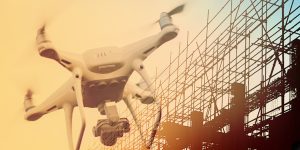
AI in Construction
February 4, 2025Boyi Hu, Ph.D., an assistant professor in the Department of Industrial & Systems Engineering (ISE) at the University of Florida (UF) has received funding from the National Science Foundation in support of his research to explore potential safety and health implications of construction crews working alongside collaborative drones (co-drones) on construction job sites.
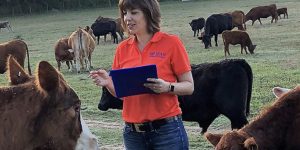
IFAS Cattle Research and AI
February 4, 2025For a century, researchers have tracked genetic traits to find out which cattle produce more and better milk and meat. Now, two University of Florida scientists will use artificial intelligence to analyze millions of bits of genetic data to try to keep cattle cooler and thus, more productive.
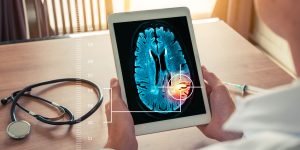
Florida Researchers and UF Supercomputer
February 4, 2025High-impact research is in full swing on the University of Florida’s powerful supercomputer, with faculty and students from across the State University System using HiPerGator — one of the smartest machines in the world — to advance critical work in areas including the environment, technology and medicine.

Ants and AI
February 4, 2025E. O. Wilson once referred to invertebrates as “the little things that run the world,” without whom “the human species [wouldn’t] last more than a few months.” Although small, invertebrates have an outsized influence on their environments, pollinating plants, breaking down organic matter and speeding up nutrient cycling. And what they lack in stature, they make up for in diversity. With more than one million known species, insects alone vastly outnumber all other invertebrates and vertebrates combined.
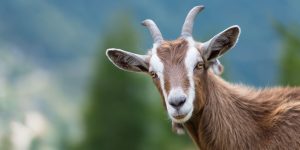
Goats and AI
February 4, 2025The patient arrived with a bladder stone, grimacing in pain and moping about.
He wouldn’t even chew his cud.
The patient, you see, was a goat. And while treated for his bladder stone — a common ailment in the small ruminants — he was also contributing to new research that aims to accurately measure pain not only in goats, but other domestic animals as well and even, one day, in people.
